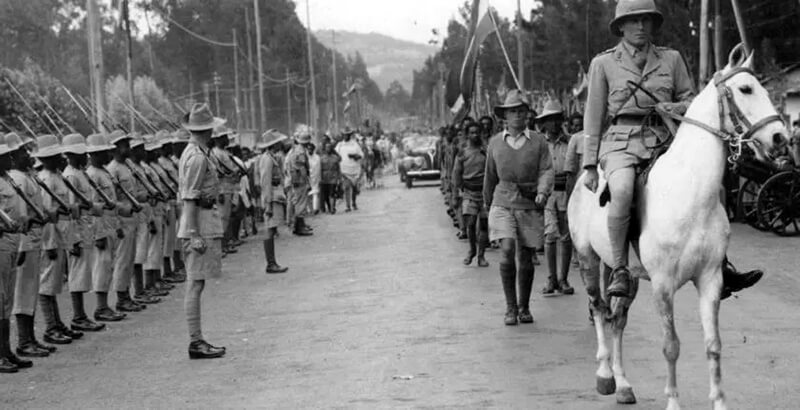| Page Created |
| February 6th, 2023 |
| Last Updated |
| January 15th, 2024 |
| Opposing Parties |
| British Biographies Chindits Biographies Allied Biographies Axis Biographies |
| Orde Charles Wingate |
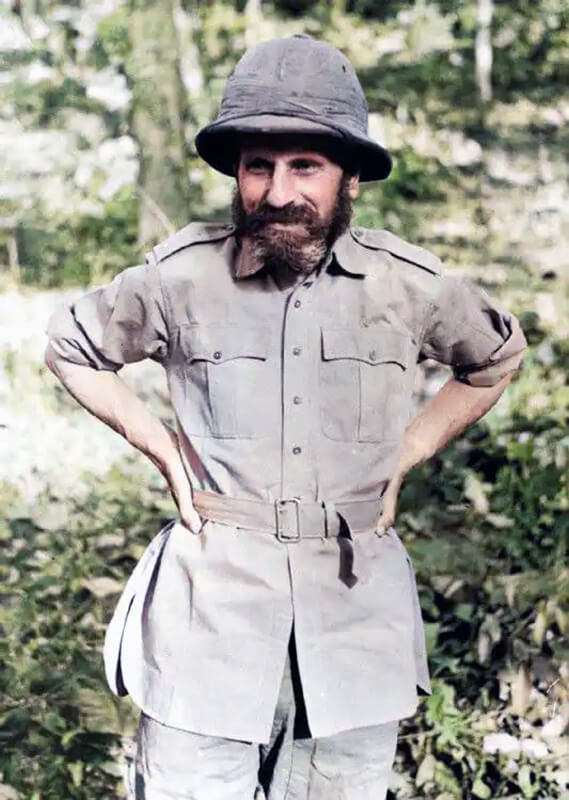 |
| Royal Artillery |
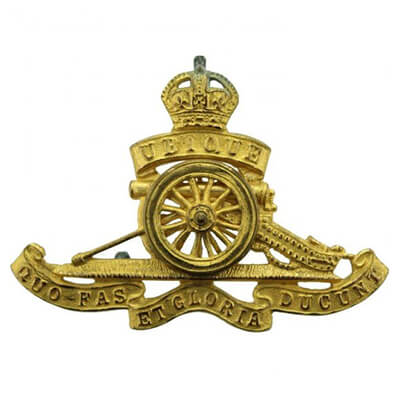 |
| Sudan Defence Force |
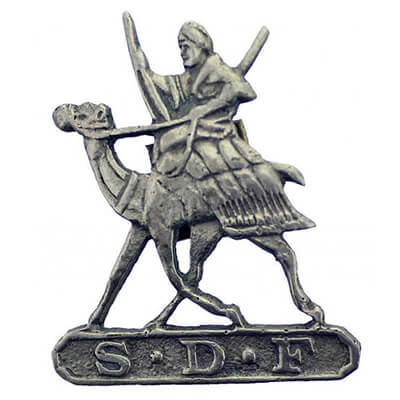 |
| 71st (West Riding) Field Brigade |
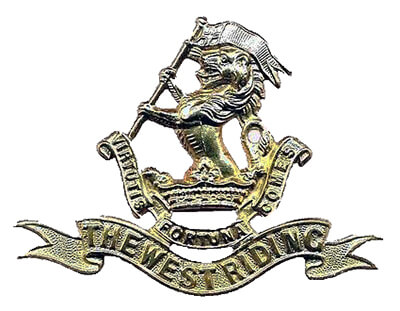 |
| Special Night Squads |
 |
| Special Operations Executive |
| Chindits |
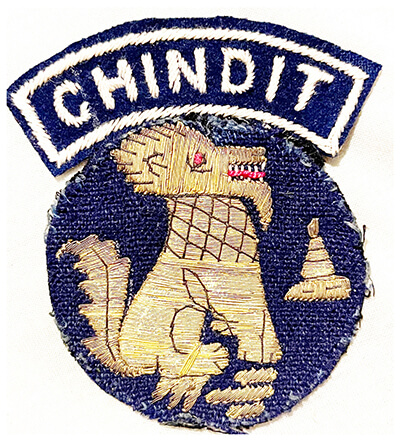 |
| Biography Orde Charles Wingate |
Biography Orde Charles Wingate
Wingate is a British Army officer and unconventional warfare specialist. He is best known for his role in the development of the Chindit tactics during World War II. Wingate is born on February 26th, 1903, in Naini Tal, India, to a Christian family related to the Wingate baronets. His father, Colonel George Wingate, is a committed member of the Plymouth Brethren. He marries Mary Ethel, the oldest daughter of the Orde Browne family, who also belongs to the Plymouth Brethren. After his father retires from the army, the Wingate family moves to England where Orde spent most of his childhood.
Wingate receives a Christian education typical of the time, with a strong emphasis on studying and memorising the scriptures. He attends Charterhouse in Godalming as a day boy and is kept busy at home. His parents encourage independent thought, initiative, and self-reliance through challenging projects.
Military Academy
Wingate leaves Charterhouse in 1921 and joins the Royal Military Academy at Woolwich, which trains officers for the Royal Artillery. If a first-year student breaks a minor rule, they must endure the hazing ritual called “running.” This involves running a gauntlet of senior students wielding knotted towels, being stripped, and finally thrown into an icy cistern of water.
When it’s Wingate’s turn to run the gauntlet, he dares each senior student to strike him, but they all decline. He then jumps into the cistern himself.
Wingate receives his commission as a Royal Artillery officer in 1923. He is stationed at the 5th Medium Brigade at Larkhill on Salisbury Plain. He enjoys horse riding, gaining a reputation for his skills in point-to-point races and fox hunting, especially for finding good places to cross rivers, earning him the nickname “Otter.” Despite the low pay for army officers in the 1920’s, Wingate lives his life to the fullest. However, he is known for being a late payer of bills.
Skills
Wingate becomes a lieutenant in August of 1925. In 1926 he is sent to the Military School of Equitation due to his equestrian skills. Despite his excellent riding abilities, many of the cavalry officers at the school find him insufferable. He frequently challenges the instructors, displaying his rebellious nature.
Wingate’s cousin, Sir Reginald Wingate, a retired army general who served as governor-General of the Sudan and high commissioner of Egypt, has a significant impact on Wingate’s career and interests. He nurtures Wingate’s fascination with Middle Eastern affairs and Arabic. He encourages the young man to enroll in a course in Arabic at the School of Oriental Studies in London. Wingate completes the course with a score of 85/100.
Encouraged by Sir Reginald, Wingate takes a six-month leave to embark on an expedition in the Sudan in 1927. He cycles through several countries before reaching Genoa and then taking a boat to Egypt, finally arriving in Khartoum.
Ethiopia
In 1928, Wingate is posted to the East Arab Corps in the Sudan Defence Force. This unit patrols the borders of Ethiopia to catch slave traders and ivory poachers. He adopts a new method of ambushes during regular patrols.
In 1930, Wingate is given command of a company of three hundred soldiers and the local rank of Bimbashi (major). He is happiest leading his unit in the bush. However, his aggressive and argumentative personality often causes conflicts with other officers at headquarters in Khartoum. He is later promoted to the local rank of captain in the regular army.
At the end of his tour, Wingate leads a short expedition into the Libyan desert to search for the lost army of Cambyses and the lost oasis of Zerzura. The expedition is supported by the Royal Geographical Society and the Sudan Survey Department. The findings are published in the Royal Geographical Magazine in 1934. Despite not finding the oasis, Wingate sees the expedition as an opportunity to test his endurance and leadership skills. He ends his service in the Sudan in April 1933.
Great Britain
Wingate returns to Great Britain in 1933, where he is posted to Bulford on Salisbury Plain. Here, he is deeply involved in the training process as British artillery units undergo mechanisation. On his sea voyage from Egypt, he meets 16-year-old Lorna Moncrieff Patterson, who is traveling with her mother. They marry two years later on January 24th, 1935.
On January 13th, 1935, Wingate is seconded to the Territorial Army as the adjutant of the 71st (West Riding) Field Brigade. This is a unit of the Royal Artillery, and he receives the temporary rank of captain. On May 16th, 1936, he is promoted to the permanent rank of captain. On September 8th, 1936, he ends his role as adjutant with the unit.
Palestine
Wingate is assigned to a staff position in the British Mandate of Palestine in September 1936. Here he takes on the role of an intelligence officer. Upon arrival, he views the creation of a Jewish state as a religious duty and aligns himself with Jewish political leaders. Meanwhile, Palestinian Arab guerrillas are conducting a campaign of attacks against British officials and Jewish communities.
Wingate forms close relationships with various Zionist leaders and becomes an ardent Zionist. He feels a strong connection to Kibbutz En Harod, as it is in the same area where the biblical judge Gideon fought. He proposes the formation of small British-led commando units. These units, consisting of Jewish volunteers armed with grenades and light infantry weapons, would be trained to combat the Arab revolt. He gains the approval from Wavell, the British commander in Palestine.
In June 1938, with permission from the new British commander, General Haining, Wingate creates the Special Night Squads (SNS’s). He receives the help of the Zionist Jewish Agency and the Haganah, a Jewish armed group. The Jewish Agency covers the salaries and expenses of Haganah personnel. Wingate trains, leads, and joins the units on patrols. During which, they ambush Arab saboteurs and raid border villages used as bases. The raids often involve harsh collective punishments on villagers, drawing criticism from both the Zionist leaders and Wingate’s superiors. Wingate’s tactics proof to be effective in suppressing the uprising. He is there for awarded the Distinguished Service Order in 1938.
Contreverse
However, his political involvement with the Zionist cause and a public statement in support of a Jewish state during his leave in Britain leads to his removal from command. He is considered compromised as an intelligence officer and too closely tied to promoting his own agenda. In May 1939, he is transferred back to Britain and becomes a hero of the Yishuv (Jewish Community). He is admired by leaders such as Zvi Brenner and Moshe Dayan. Both men trained under him and credit Wingate for teaching them everything they know.
World War 2 and Gideon Force
Wingate is the commander of an anti-aircraft unit in Britain at the start of World War II. He repeatedly proposes the creation of a Jewish army in Palestine to govern the area and its Arab population in the name of Britain. However, these proposals are rejected by both the army and government. His friend Wavell, the commander-in-chief of Middle East Command, invites him to Sudan. Here he is to lead operations against Italian occupation forces in Ethiopia. He creates Gideon Force, a Special Operations Executive (SOE) unit composed of British, Sudanese, and Ethiopian soldiers. The unit is under the command of William Platt, the British commander in Sudan. Gideon Force, named after the biblical judge Gideon, operates in Ethiopia starting in February 1941 with the blessing of Ethiopia’s Emperor Haile Selassie.
The Italians are responsible for their killing of about 7% of the population. Therefore, the Italian occupation of Ethiopia has led to widespread hatred for the Italian forces. Wingate is temporarily promoted to Lieutenant Colonel. He leads Gideon Force in the reconquest of Abyssinia and accompanies his troops in their operations.
Malaria
During his time In Ethiopia, Wingate contracts malaria. Wary of giving his detractors further reason to undermine him, he chooses to see a local doctor rather than the army medical staff. The doctor prescribes a large quantity of Atabrine. This has the potential to cause depression as a side-effect when taken in high doses. Already discouraged by the official response to his leadership in Abyssinia and struggling with malaria, Wingate tries to take his own life by stabbing himself in the neck. Fortunately, another officer takes quick action to save his life. He is sent to Britain for recuperation from malaria and depression.
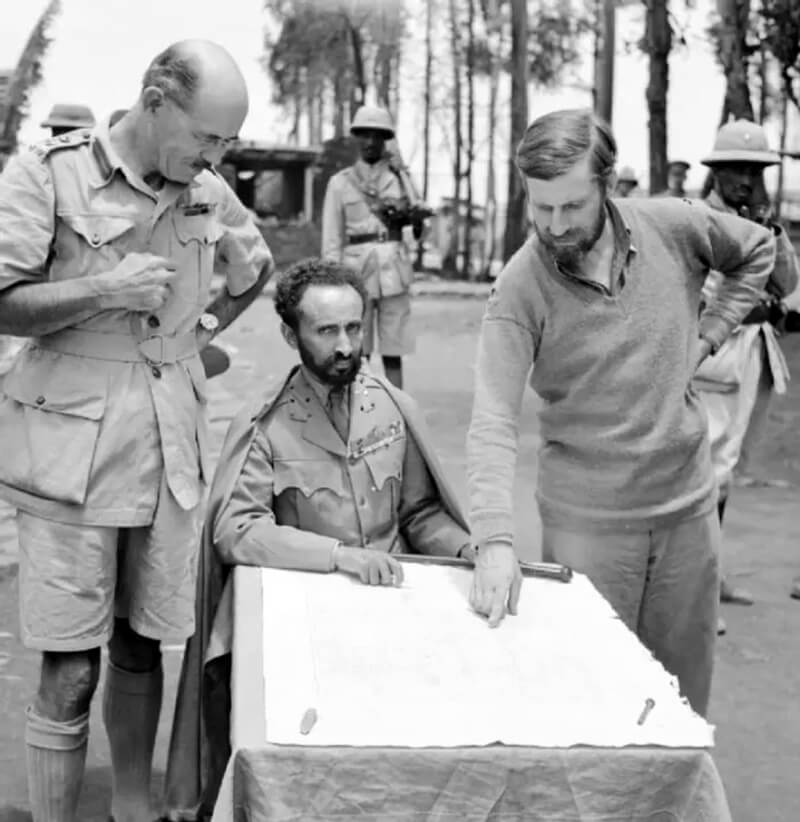
Burma
A highly edited version of his report on Ethiopia is sent to Winston Churchill, and on February 27th, 1942, he is eventually posted to Rangoon, Burma as a “supernumerary major without staff grading.” Here Wingate serves as a Colonel in the Far East, appointed by General Wavell in March 1942. He is responsible for organising guerrilla units to fight behind Japanese lines. The collapse of Allied defenses in Burma impacts his plans and he returns to India to advocate for jungle long-range penetration units.
In 1942, Wingate establishes a training center in Dhana, near the Saugor district in Madhya Pradesh. Here he attempts to toughen the troops by having them camp in the Indian jungle during the rainy season. However, this results in a high sickness rate among the troops and personnel being replaced due to illness.
Wingate is known for his unique personal habits, such as eating raw onions, scrubbing himself with a rubber brush instead of bathing, and greeting visitors to his tent while naked, which has earned him few friends among the officer corps. Despite this, he is recognised for his bravery and leadership in the face of the enemy.
Chindits
Intrigued by Wingate’s theories, General Wavell gives him the Indian 77th Infantry Brigade. Wingate transforms them into the Chindits, a jungle long-range penetration unit. The original 1943 Chindit operation is intended to be a coordinated plan with the field army. Unfortunately, the army’s offensive into Burma is cancelled. Inspite of that, Wingate convinces Wavell to let him proceed anyway. Granted permission, he sets out from Imphal on February 12th, 1943, with the Chindits organised into eight separate columns. The force achieves initial success, but soon faces difficulties such as exhaustion, food and water shortages, and enemy interference.
Eastern Army Headquarters orders Wingate to withdraw his units back to India on March 22nd, 1943. However, he and his senior commanders agree to retrace their steps to the Irrawaddy and attack the enemy. By mid-March, the Japanese have three infantry divisions pursuing the Chindits. The Chindits are eventually trapped inside the bend of the Shweli River. The force splits into smaller groups to evade the enemy and returns to India during the spring of 1943, incurring high casualties and losing approximately one-third of their total strength.
Expansion
The first Chindit operation results in high casualties and some in the British and Indian army question its value. However, in London the operation is viewed as a success and is used as propaganda to show that the Japanese could be beaten. Winston Churchill, a strong supporter of commando operations, is impressed with the Chindits and their accomplishments. Wingate writes a report promoting his ideas for deep penetration warfare and is invited to the Quebec Conference to explain his ideas to the Combined Chiefs of Staff. The leaders are impressed, and larger scale deep-penetration attacks are approved, resulting in Wingate’s promotion to acting Major General.
After his meeting with the Allied leaders, Wingate contracts typhoid and is unable to participate in the training of new long-range jungle forces. Upon his return to India, he is given six brigades but his plan to convert the entire front into one giant Chindit mission is dropped due to lack of troops to defend air bases. The second long-range penetration mission is cancelled for lack of air transport but Wingate proceeds with the mission anyway after discovering that 1st Air Commando, an American Unit created to support the Chindits, has 150 gliders to haul supplies and transport troops. The 1944 operations aim to establish fortified bases in Burma from which Chindits can conduct offensive patrols and blocking operations.
Operation Thursday
Wingate plans during Operation Thursday for a landing of 77th Brigade in Burma via glider, with the rest of the brigade and 111th Brigade flying in by C-47s. Three landing sites are selected, but the “Piccadilly” landing site is obstructed, and Wingate becomes emotional, leaving the decision to proceed or cancel to Lieutenant General Slim. Slim orders the operation to go ahead and landing site “Broadway” is selected as the primal landing site. Although the landings initially fail, Calvert’s brigade eventually makes the landing ground usable and sends a success signal. The Chindits establish base areas and drop zones behind Japanese lines, disrupting the Japanese offensive and drawing off troops from India.
Wingate’s Death
On March 24th, 1944, Wingate flies to inspect the conditions in three bases in Burma that are controlled by the Chindits. Despite protests from the pilot, he agrees to allow two British journalists to join him on the flight back to Imphal. The plane, a United States Air Force, North American B-25 Mitchell bomber of the 1st Air Commando Group, crashes into the hills in the state of Manipur, killing all ten passengers on board, including Wingate.
After Wingate’s death, Brigadier Walter Lentaigne is appointed as the new commander of Long Range Patol forces, and he flies out of Burma to assume the role as Japanese forces are attacking Imphal. The 111th Brigade’s command in Burma is handed over to Lieutenant Colonel J.R. Morris.
All ten crash victims, including the two pilots who are American, are initially buried in a common grave near the crash site. As identification is not possible due to the bodies being charred beyond recognition, the exhumation of the ten bodies is carried out in 1947 and they are reburied in Imphal. In 1950, the bodies are exhumed once again and flown to Arlington National Cemetery in Virginia for reburial. The exhumation is possible due to a three-party agreement among the governments of India, Great Britain, and the United States, and it is done in accordance with the families’ wishes.
